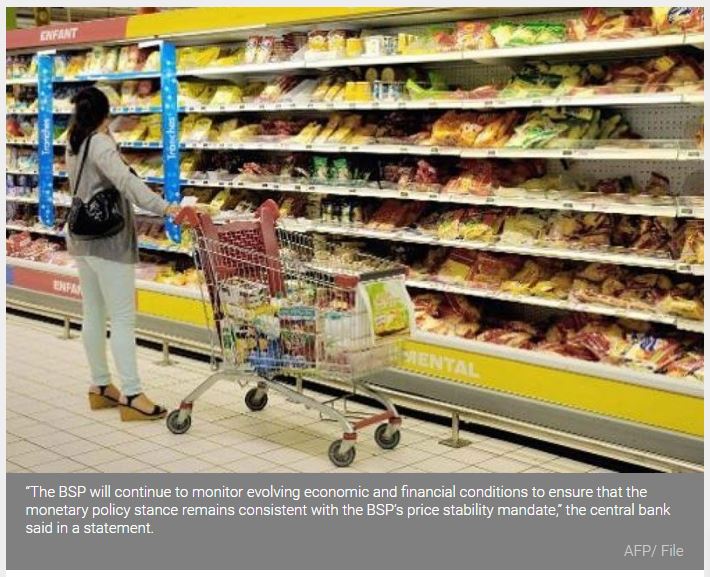Philippines: Inflation has potential to climb to 5% in March — BSP
MANILA, Philippines — Inflation is likely to hit as much as 5% this month even as signs are emerging that tight meat supplies responsible for the price uptick in recent months are abating, the central bank said on Wednesday.
The official projection is pegged between 4.2% and 5% inflation for March, this time driven by higher oil prices and a weaker peso that made import costs more expensive. The official inflation report will be released April 6, and anything above February’s 4.7% will mean a sixth straight month of acceleration.
More than that, a reading of 5% would also mean putting at risk central bank Deputy Governor Francisco Dakila Jr.’s forecast that average inflation for the year will not hit that level. At the time the Bangko Sentral ng Pilipinas (BSP) decided to stay put on policy, Dakila said BSP does not expect inflation to venture to the 5% level— which had not been seen since the rice crisis in 2018.
“The BSP will continue to monitor evolving economic and financial conditions to ensure that the monetary policy stance remains consistent with the BSP’s price stability mandate,” the central bank said in a statement.
Inflation has become a potential source of conundrum for BSP Governor Benjamin Diokno and his peers at the seven-member Monetary Board, as they take on the responsibility of pump priming an economy dragging its feet back to growth from a historic pandemic crash. So far, Diokno has been confident not to do anything to address the problem he sees will get resolved once meat supplies are replenished.
After bringing down the policy rate by 200 basis points last year, BSP has maintained the overnight borrowing rate to a record-low of 2% to encourage banks to lend and borrowers to source credit for their activities. That has bear little fruit to date, with bank lending shrinking 2.7% as of February, the worst performance in over 14 years.
Meanwhile, inflation risks are also spreading away from food. Global oil prices have climbed up over the past weeks on expectations of a broad economic bounce-back that will facilitate demand for fossil fuels. At home, energy department data showed kerosene prices went up P3.50 per liter, diesel by P4.60 per liter and gasoline by P6.15 a liter in the first quarter from end-2020.
The peso had also weakened to 48.545 to a dollar as of Tuesday, 1.1% down from 48.023 closing in the last trading day of 2020. That means imports, including oil, just got costlier, trickling down to local prices.
On the flip side, lower power and food prices are putting some downward pressure that can help control inflation. In March, this includes a decrease of a P0.3598 reduction per kilowatt hour of prices for Manila Electric Co. customers. A government-imposed cap on pork prices sold in Metro Manila also had a dampening effect on inflation.
For the first 2 months, inflation has averaged 4.5% year-on-year, running above the BSP’s 2-4% target for the year. The central bank expects it to remain above-target, albeit at a slightly lower 4.2% by yearend.
Source: https://www.philstar.com/business/2021/03/30/2088302/inflation-has-potential-climb-5-march-bsp


 English
English




